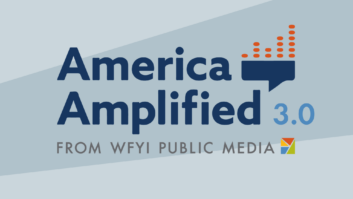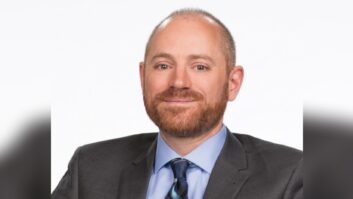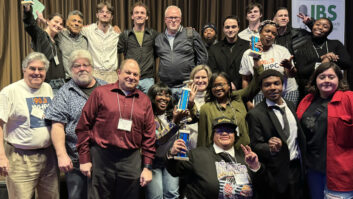We have more comments to share from readers and pundits about implications for U.S. radio of the election of Donald Trump, a conversation begun yesterday.
“We will probably see a drift toward further deregulation just as a tendency,” said one engineer. “That said, with 20% of the commercial market wrapped up in the twin zombie firms of iHeart and Cumulus, there are limited places to see consolidation. But I would guess that in a more lenient environment, the push would be on to allow the combination of a Greater Media and Beasley without having to divest stations. The argument that there are multiple sources of news and information in a given market I think gains strength over time.”
He believes a secondary effect of Trumpian economic proposals will be to raise the stakes on corporate radio groups due to an increase in interest rates. “Could we finally see the end of those damn companies and some new energy brought to radio? Will appliance manufacturers shut down their Mexican operations and buy land for cheap in Indiana to make dishwashers? Possibly.”
Another engineer noted briefly,“The Donald has not said much about FCC appointments and comm policy at all. My guess is he will keep the First Amendment and talk radio protected, as well as keeping consumer choices more free and less regulated.”
One Radio World reader, responding to the last paragraph of the John Garziglia commentary posted here yesterday, wrote: “Sounds like Mr. Garziglia has a major case of sore-loser-ism. I sincerely doubt broadcasters on either side of the spectrum will have much to fear. A Trump administration is far less likely to be so spiteful and vindictive, unlike the corruption rampant in his (finally vanquished) opponent. That would have been the person to be worried about.”
The market-oriented advocacy group Tech Knowledge called Trump’s victory “a new hope” for the FCC. Fred Campbell, its director, issued a statement saying the FCC may “renew its faith in the dynamism of private enterprise and the competitive spirit.” Campbell is a former chief of the Wireless Telecommunications Bureau and was an advisor to Chairman Kevin Martin.
He argued that the commission at one time had a policy of relying primarily on competitive market forces to drive investment and innovation in communications networks and services. “The Obama administration’s love for top-down government mandates threatened to destroy that economy, but it’s not too late.”
Michi Bradley at REC Networks blogged about the impact on the low-power FM community. She noted that LPFM efforts have attracted interest from both parties and that the co-sponsors of the Local Community Radio Act were Republican John McCain and Democrat Maria Cantwell. “Both parties realized that expanding community radio was the right thing to do.”
She thinks that “If Congress or Republican-appointed commissioners take any adverse actions against LPFM in the next four years, it will not only go against the secular segments of the service but also against the faith-based segment, which is just as big as all of the secular segments combined. To coin a term from the past, any substantial action on LPFM stations could be seen as a ‘war on religion.’” However, she continued, while LPFM may not find itself under direct assault, “any Republican attack on NPR/CPB may trickle down to us.” That commentary is here.
Many voices are expressing concern for the future of public broadcasting funding.
Blogger Ken Mills worries that we’ll see new energy in attempts to defund CPB and undermine funding support for public radio. “While it is true that some public radio stations have the money to continue operations independent of CPB funding, many stations need CPB assistance to continue their work.” Here’s his blog.
Another public radio observer told us, “An ongoing funding system might be put in as a compromise but it would be a one-shot deal and it would, over time, reduce the involvement of our federal government in supporting broadcast outlets. This will have a really large impact on the public TVs; given the whole OTA situation with TV in general, it might be the end of PTV as we know it.” Public radio will see its funding sources shift too, though this reader thought such a change could help a smaller leaner NPR in the long run by weaning it of the senatorial “sword of Damocles” of annual allotments.
[Read about Trump’s regulatory philosophy on his campaign website.]
Communication lawyers continued to weigh in. At Wiley Rein LLP’s Telecom, Media & Technology Practice, partner Kathleen Kirby wrote that “A Republican-led FCC is likely to revisit deregulatory policies that Democrat-led commissions have eschewed. The FCC’s recently adopted media ownership rules, which retain almost all of the existing restrictions on television, radio and newspaper ownership, could be ripe for reconsideration and revision.” She said the president-elect “has expressed skepticism about so-called big media companies, and it remains to be seen whether his antitrust policies will have an impact on proposed mergers between distributors and content providers.”
Her colleague at the firm Shawn H. Chang noted that when Congress returns this month, its unfinished business will include the reconfirmation of Jessica Rosenworcel for a second term as FCC commissioner and the potential floor consideration of Mobile Now Act authored by Sen. John Thune (R-S.D.). “With Republicans now set to control both the executive and legislative branches next year, it is far less likely that Senate Democrats will continue to condition the passage of the Mobile Now Act on the reconfirmation of Commissioner Rosenworcel — a posture that has stymied passage of the bill.”
And he wrote that a Trump FCC “will very likely attempt to roll back the 2015 Open Internet Order and the decision to treat broadband service as a telecommunications service subject to common carriage requirements. It also may seek to block more transactions involving the merger of large communications or media companies.”












